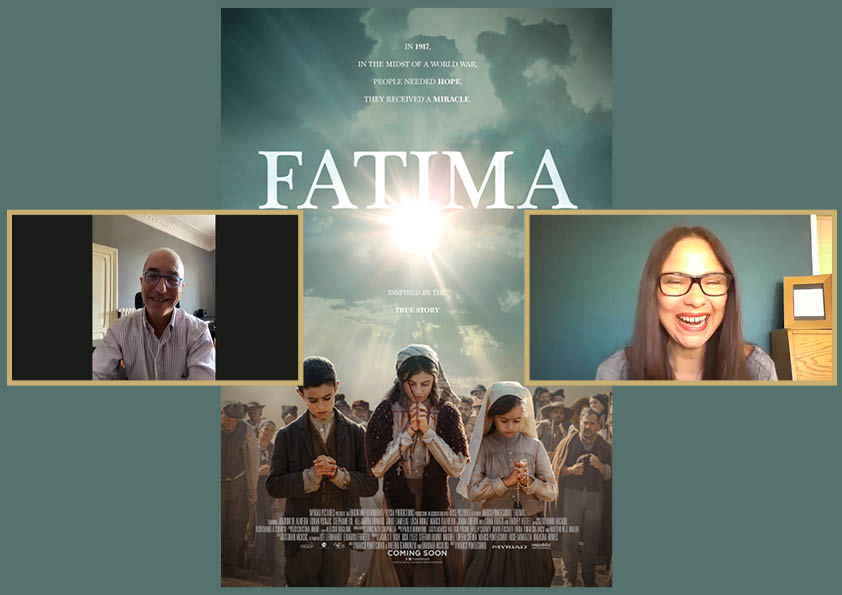
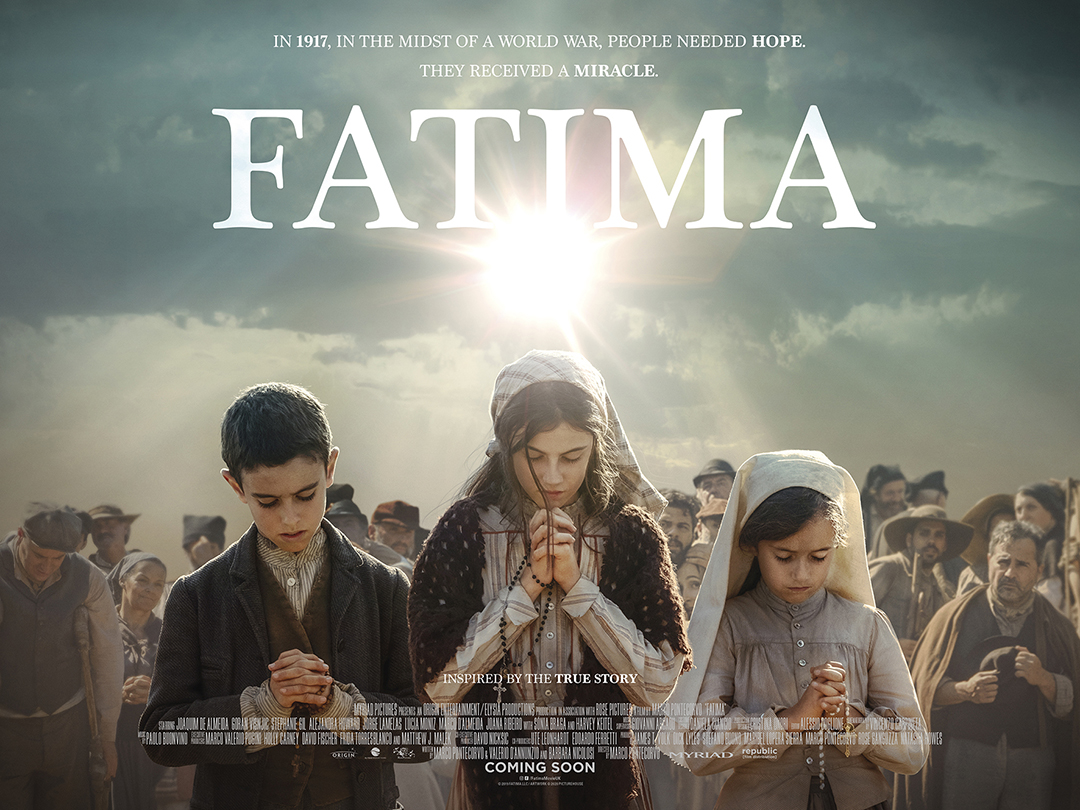
At A Glance
Set in the backdrop of World War I Fatima is a film based on a true historical event. Experiencing a visitation from the Virgin Mary three shepherd children resolutely stand firm in what they witness no matter which authority in the secular country of Portugal tries to dissuade them otherwise.

Film Details
Directed by Marco Pontecorvo
Written by Valerio D'Annunzio, Barbara Nicolosi, Marco Pontecorvo
Released by Republic Film
2021, 113 minutes, PG-13
In Cinemas 25th June 2021
Available DVD & On Demand
Cast
Joaquim de Almeida as Father Ferreira
Goran Visnjic as Arturo
Stephanie Gil as Lucia
Alejandra Howard as Jacinta
Jorge Lamelas as Francisco
Lúcia Moniz as Maria Rosa
Harvey Keitel as Professor Nichols
Sônia Braga as Sister Lucia
Fatima is an objective, character driven story of faith not religion. Faith in your beliefs, yes; but predominantly faith in yourself and being true to yourself. Fatima opens as academic and sceptic Professor Nichols (Harvey Keitel) interviews Sister Lucia (Sônia Braga) an elderly nun for his book. Sister Lucia is no ordinary nun, as a child she and her two cousins claim to have been visited by the Virgin Mary, and as such we are transported back to 1917 when the series of visitations occurred. The film casts light on the opposition faced by the three children in an attempt to make them recant their story. With director Marco Pontecorvo at the helm I was lucky enough to conduct an interview of my own to discuss the many aspects of this true story too tantalising to resist.
I’ve been lucky enough to see the film and I think one of the huge appeals of the story is that it’s based on an actual historical event, is that something that was appealing to you?
Absolutely, you start from something real and then you understand your position about what has happened. What has happened makes you ask yourself some questions and I believe that’s what the movie does at the end of the screening apart from enjoy or not or whatever. Enjoying the story and be moved or not, but for sure it’s posing some questions about yourself, your position, about what’s transcendent spirituality, nature and it is also a story about human beings and strength, power of faith and a message of peace. So all these pushed me to investigate more and make this movie.
And I think because the story is based, it’s set in Portugal and it’s based on these three children who see the Virgin Mary and I think even though it can be perceived a religious film it really isn’t, it’s very much a family drama, and also makes us think about and question our faith, but it also shows the strength and fortitude of these three children who no matter the odds they stick to their story don’t they?
Absolutely, you really get the purpose. First of all talking to everyone about a religious subject for sure, but the vision is broader, it’s open to something else. If you pay attention every scene could be read in two different or even more possibilities. Let’s say, I’ll give you an example sometimes about the lightening, the lightening, it’s only Lucia seeing that because the other two kids didn’t. So is Lucia imagining everything? Or not? It’ always the structure of the movie to really have sceptical characters like Harvey Keitel and Goran Visnjic that pose the question of the not believers. But one of the things I like best in the story was, apart from the spirituality, religious side, is the relationship between mother and daughter and the fact that something that big arrived and destroy the equilibrium that they find inside of the family, inside of the village and outside also because this arrived up to Lisbon which for the period was quite far away. So really changed a lot.
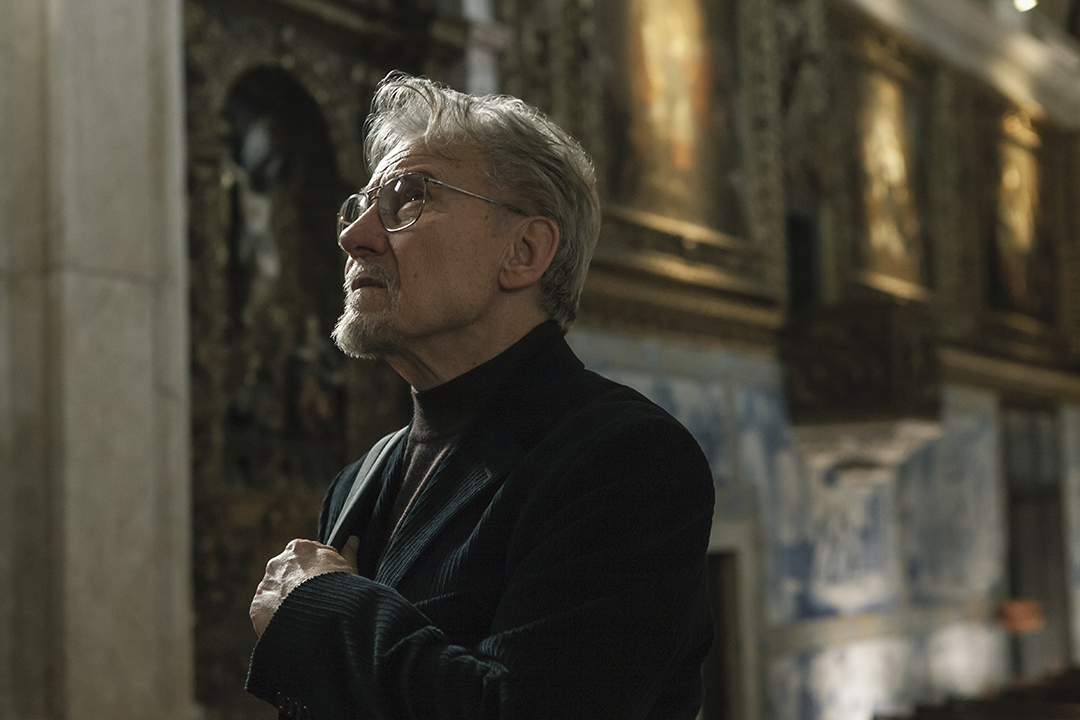
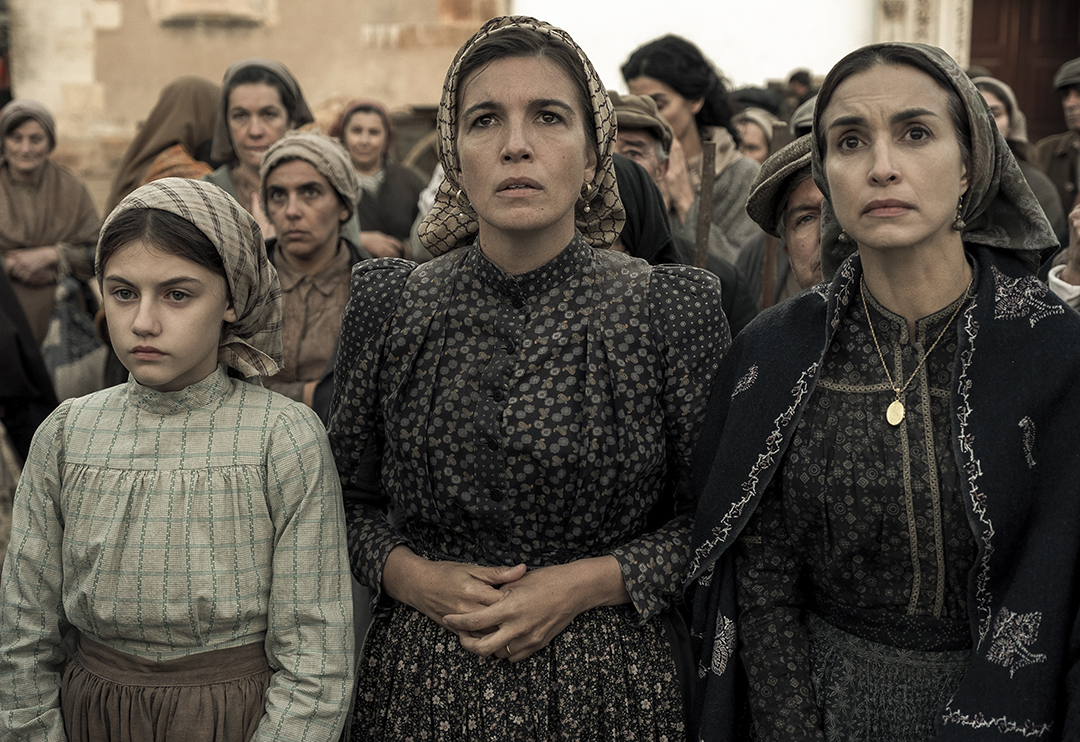
“It is a story about human beings and strength, power of faith and a message of peace."
Yeah, it’s interesting you say that because there is such a build-up of momentum throughout the film where during World War I and we see members of the village are losing their relatives to the war, so we already have that sense of drama and sinister backdrop of what is happening in the world and then as the story unfolds this relationship between the mother who is already in a very fragile place because her son is at war and not knowing whether he’s dead or alive and then you’ve got her daughter who she can’t believe is the chosen one to see this vision. And I think the way their relationship unfolds you see some really remarkable acting between the pair of them isn’t?
I love playing a lot with actors, that’s for sure, not only in Fatima. It’s one of the parts I like better, it makes a change because I was a DP (Director of Photography) and the change in between DP that works with images so this part overlaps with my work as a director but the things that I like a lot is to build characters, work with actors, to shape every single expression line and everything and stay there to make a real three dimensional characters to serve the story let’s say. And I really enjoy every much Lúcia Moniz, the three kids, all of them. Harvey Keitel, Sônia Braga, l love all the cast and I love playing with them. Going to the other side of the question on the previous part I think that for me, exactly the human side but is it’s the two sides that come together because the Virgin Mary arrives at a moment when the world was crazy, it was 1917 there were a few years where there was fighting a lot of deaths. So there was a lot of frustration and Portugal strangely enough because it’s a Latin country was anti-clerical at that period, really anti-clerical because it was a new born republic and they want to follow ideas coming from the French revolution. And so they didn’t like the idea of the population being so connected to religion and they were pushing for a big change inside of the population so they have to learn how to write. This is also a message that comes to say the Virgin Mary, peace stop this madness otherwise something bad will come, and it’s the Second World War. So I think the two things, the two parts, the religious side and the human side really mixed up in the story and I think it’s the power of this story.
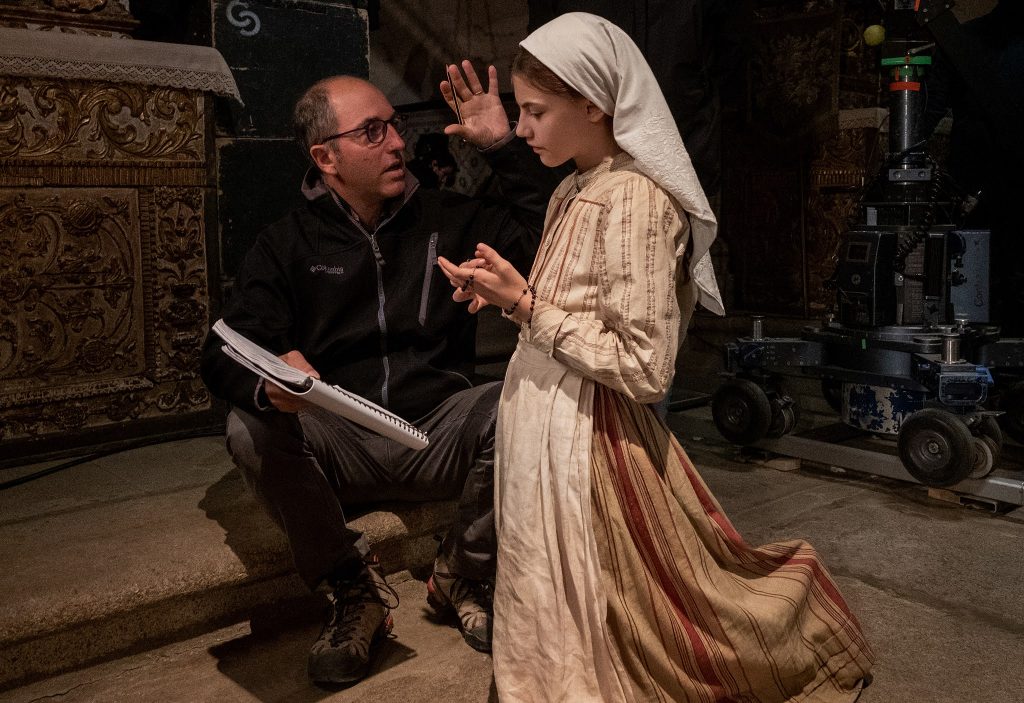
Absolutely, I think the irony is as well is that the Virgin Mary comes as a vision to these children to talk about world peace but it actually brings a conflict closer to home which is between the mayor and the secular thoughts of the town and the religious Catholic side of the town, which is quite ironic isn’t it?
Absolutely, absolutely. Luckily it was only a fight and not a war (laughs). Arguments and all that stuff but they did really arrive to something more than that. But sure every time there is a division, but at the same time I think, even the other side the secular part they really were there at the miracle of the sun. If you see the description are exactly the same, the scientist, journalist, and the description of believers are the same. There is one of the biggest newspapers of the period and the editor was there and he wrote and said, ‘I’m a journalist first and will not change I am not a believer I will not change my mind, but I have to tell you what I saw.’ And if you put together the description one near by the other, they are exactly the same.
That’s incredible. The story is told as if there are two separate stories isn’t there. We set the story up with Harvey Keitel as the cynic I suppose speak Lucia who is now a nun and wanting to hear her story and then obviously we have Lucia’s story told to us. Was that interesting for you to create and sets the story up, you got the sceptical point of view so that represents on audience point of view and also the nun Lucia who still has faith and is resolute about that. So we have two representatives of two different audiences that can enjoy the film.
Absolutely, let’s say this was the purpose but one of the purpose because the other one is to see the story at a distance. Because when you are inside, even in the old story 1917, so with little Lucia, there are the sceptical and a part of the village, the mayor so I didn’t want to show only this side, because this side was also was in the previous part of the story, I mean the old part of the story. The other one is to see what is happened with the filter of time, so with a certain distance, instead of living it, let’s look back at the past and with all these years that have passed from that moment a new change, you were only a kid, how do you see it? What was your experience? How important it was for you and the world? What you regret, you don’t regret? So it is not only something to show the point of view of the sceptical but illuminating the other story, I believer. For example, what I say about the iconography, well not me it’s Harvey Keitel (laughs) say but I wrote the lines so I know what I asked him to say with the lines (laughs). It was very important not for the part in between Sônia Braga and Harvey Keitel and so the old Lucia and the professor, but also to say why she sees the Hell is this way, because she see the painting is the vision of that she has of hell is exactly the painting that has of Hell in her church, so it’s everything tied together. There is something about the iconography and how much the iconography can influence our judgements and imagination.
You’ve worked as you said as a Director of Photography and also making documentaries you’ve been a camera op for that to. So do you think that background another kind of analytical eye and has influenced you to be as authentic and truthful to the original story as you can?
I think for sure my experience as DP, Director of Photography helped me to have the tools to tell the story and to use it to achieve what I want in the sense of emotion to exactly arrive where I want with the image. It’s like writing, if you know how to use the grammar, dots and commas then you know how to express yourself better. But I really like to study not only this subject, not changing not inventing too much because I don’t like, I think we find enough in the reality that we don’t have to invent so much. You adjust the reality sometimes for the arc, the dramatic arc but I don’t push it because I think we have to respect and that’s what I tried to do on this movie I tried to respect the different points of view, including mine. Adding for example nature as one of the main characters of the movie, the beauty of nature where someone gifted as Lucia can see God. But also non-believers a well you don’t have to believe to see the beauty that surround us and enjoy that and enjoy some moments as Lucia is enjoying when she is in the hill with the flock and everything.
Yeah, and you’ve definitely achieved that with the film it’s very respectful and it’s beautifully character driven drama, but my time is up with you unfortunately Marco, so I’m going to have to let you go.
I like this expression, I like your end, it’s not only a religious movie, it’s a religious subject, it’s a spiritual movie and it’s about a character drama, driven by characters, yes. I agree completely. Go and see it (laughs)! I can only say please go and see it and enjoy!
Related article: Interview with Fatima actor Goran Visnjic (Artur)
Related article: Interview with Fatima actress Alejandra Howard (Jacinta)
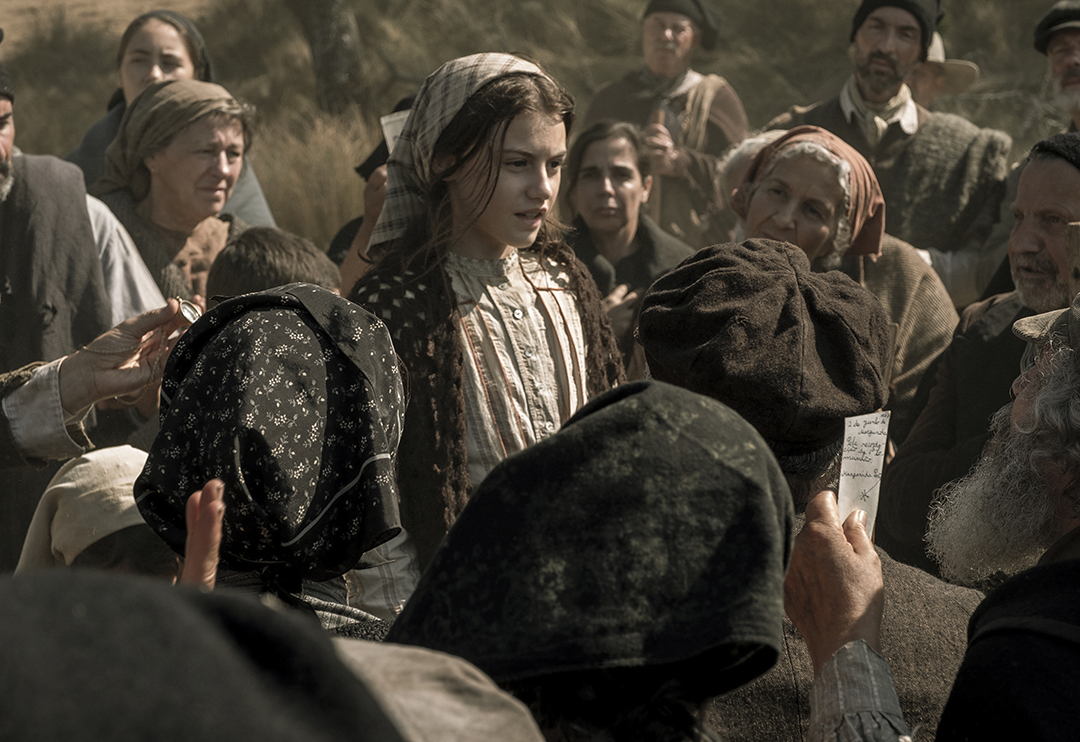
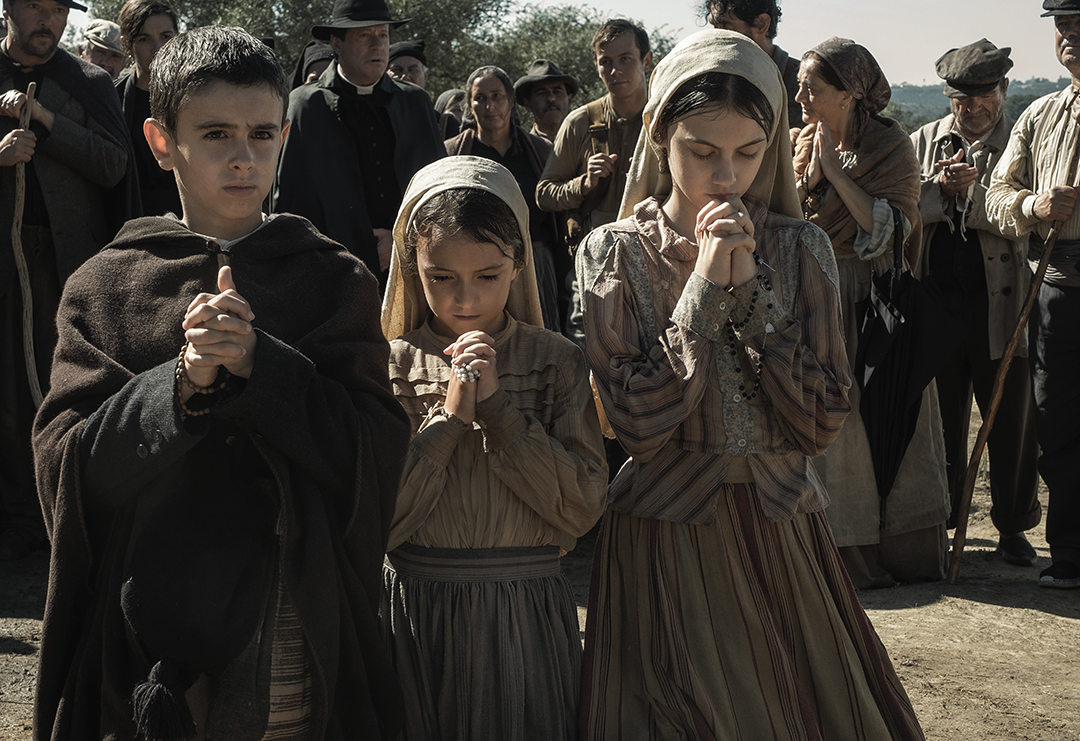
Fatima - Official Trailer
Claire Bueno
Claire Bueno is a film journalist, presenter and interviewer, having moderated BAFTA, Royal Television Society (RTS), Women in Film and Television (WFTV), and Apple Store Q&As and hosted Comic Con panel talks. Claire is the founder of Premiere Scene Magazine and has had the privilege of interviewing esteemed artists including Tom Cruise, George Clooney, Brad Pitt, Sir Anthony Hopkins, Sigourney Weaver, Emily Blunt, Samuel L Jackson, James Cameron and Andy Serkis.
As a media coach Claire works with leading personal publicists, HBO, Netflix, Sky, ITV, Penguin Random House, the BFI, DDA, MacMillan and Premier, offering practical coaching sessions and safe environment for talent to perfect their interview technique before facing the press. She has extensive experience working with emerging and seasoned professionals and where English is not their first language.
Additionally, Claire is the producer of the critically acclaimed feature documentary CLEANIN’ UP THE TOWN: Remembering Ghostbusters and the upcoming TOO HOT TO HANDLE: Remembering Ghostbusters II.